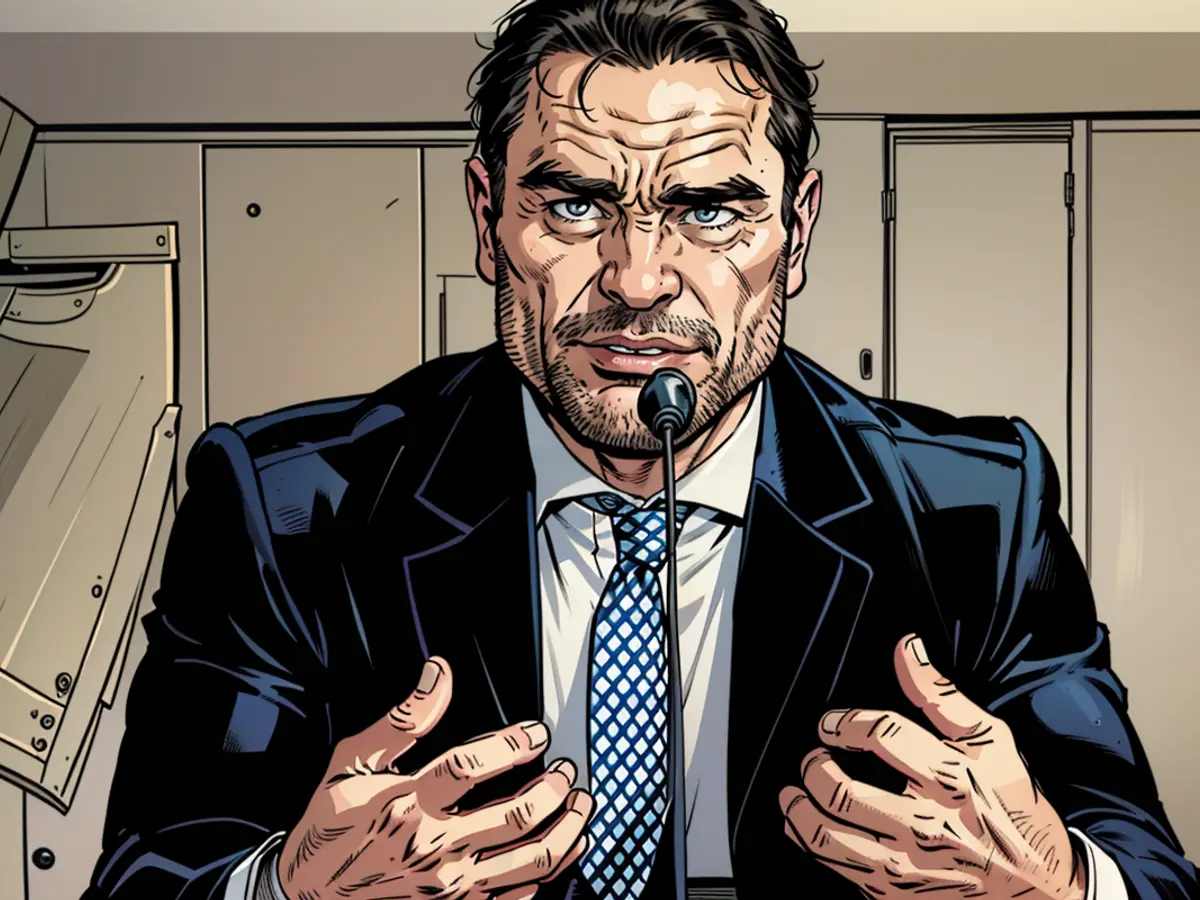Upcoming European and local votes - Parties assess mixed feelings after election outcomes.
Following the European and local elections in Saxony, the Saxon political parties now approach the state election on September 1 with mixed emotions. The only victors in the initial analysis on Monday were the AfD and the Left Alliance of Sahra Wagenknecht. Jörg Urban, the AfD state leader, suggested that other parties reconsider their stance against his party. "The party with the most voter support cannot be overlooked in the long run," he said in Dresden, hoping for "transformation in the political landscape." The absence of the AfD would make conservative politics impossible.
The proposal was primarily aimed at the CDU of Minister President Michael Kretschmer. Alexander Dierks, the General Secretary, categorically denied any collaboration with the Saxon AfD, which is labeled as right-wing extremist by the Constitutional Protection. "We have legitimate, content-related reasons why this party cannot be partnered with," Dierks stated. "We've witnessed how this party has positioned itself in recent years. Our aim is to remain the leading force in Saxony's state election on September 1. The state requires a skillful and state-led administration in the heart of society."
The AfD secured triumph in the Saxony European election. According to the preliminary results, they garnered 31.8 percent of the votes. The CDU acknowledged their failure with 21.8 percent. The Left Alliance of Sahra Wagenknecht came in third with 12.6 percent, followed by the SPD (6.9), the Greens (5.9), and the Left (4.9). The municipal election wasn't completely tabulated by Monday afternoon. Nevertheless, significant vote growth for the AfD was already observable in many areas.
For Jörg Scheibe, BSW state leader, these results demonstrate that numerous citizens are profoundly dissatisfied with the existing politics and cannot identify with it. The Left Alliance garnered considerable support from the voters. This is also evident in the local elections. "In places where we have participated in the municipal elections, we have received large to very significant successes." This contributes to momentum for the state election. The aim is to obtain as many candidates as possible in the BSW state parliament. "We are all about content. We strive to implement as much of our content as possible." An AfD state president is unthinkable. The BSW positions itself in the middle of society.
According to Christin Furtenbacher, chairwoman of the Greens, none of the democratic parties succeeded in bringing their issues to the forefront and alleviating citizens' concerns. "We have failed to fulfill our potential. We have a lot of work ahead of us." For co-chairwoman Marie Müser, the democratic rule of Saxony is under threat after the election outcome. All democratic parties now bear a collective responsibility and obligation. It's high time for mutual verbal assaults and accusations to cease. There have also been denouncements and vigorous attacks against the red-green government from the democratic opponents: "We can no longer intensify the political climate anymore, because the situation is serious."
The Left Party evaluated their performances negatively. Lars Kleba, the state manager, expressed regret, saying, "We have a lot of shadows, and we also have some bright spots." He alluded to the outcome in Leipzig, where the Left Party emerged as the second strongest faction in the city council after the CDU. Fortunately, there are still a few hope-inducing events. Party leader Stefan Hartmann considers the 4.9% result for the upcoming state election a demanding but achievable objective. The party is unyielding. "We will now strive for every single vote."
Thomas Weidinger, state leader of the Free Voters (FW), delved further into the term "wall" in his analysis. The outcome of the European election demonstrates the catastrophic collapse of the wall policy. The FW in Saxony will dissociate themselves from extreme positions. "However, abstention does not translate to isolation." The AfD has strengthened behind the wall. Saxony's citizens do not want to be instructed on whom they may and may not vote for: "They long for their perspectives to be heard and for politics to address their issues and concerns (...) If this doesn't change, September 1st won't look drastically different."
Read also:
- The EU and local election outcomes have left many parties in Saxony feeling a mix of Frustration and Euphoria as they prepare for the state election on September 1.
- Sahra Wagenknecht's Left Alliance emerged as one of the victors in the initial analysis of the European and local elections in Saxony, alongside the AfD.
- Jörg Urban, the AfD's state leader, encouraged other parties to reconsider their stance against his party, suggesting that the party with the most voter support cannot be overlooked for an extended period.
- The CDU, led by Minister President Michael Kretschmer, rejected any collaboration with the Saxon AfD, labeling it as right-wing extremist by the Constitutional Protection.
- The AfD secured a significant victory in the Saxony European election, with preliminary results showing they received 31.8% of the votes, while the CDU only managed 21.8%.
- The proposed collaboration between the CDU and AfD has sparked controversy, with many parties in Saxony expressing concern over the potential impact on democratic rule and the protection of the constitution.
- The local elections in Saxony also saw significant vote growth for the AfD in many areas, raising concerns for the upcoming state election on September 1.
- For Michael Kretschmer and the CDU, the state election on September 1 is an opportunity to reaffirm their position as the leading force in Saxony and to provide a skillful and state-led administration in the heart of society.
- With several parties expressing a need for unity and cooperation in the wake of the election outcomes, the September 1 state election could prove to be a pivotal moment in determining the political direction of Saxony and its relationship with the EU.








